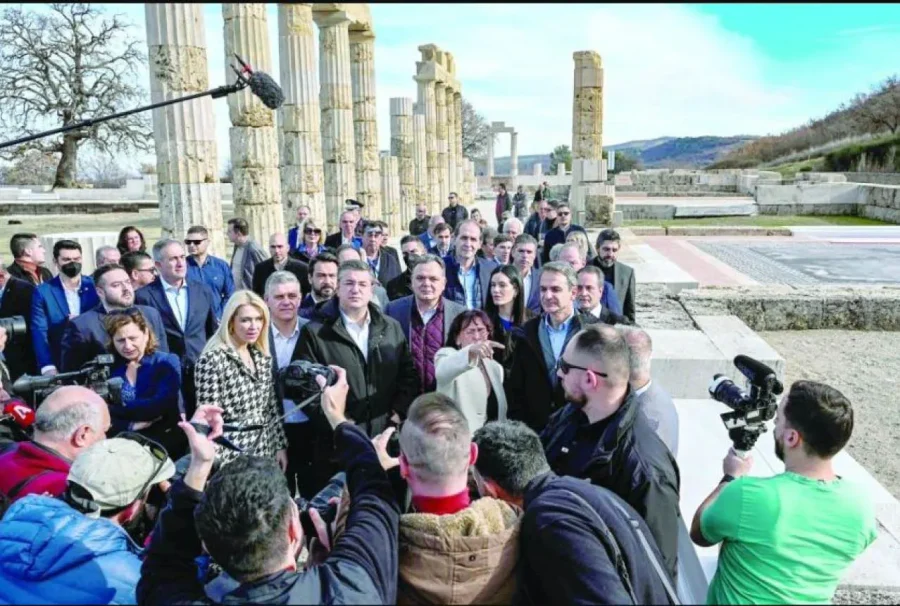An ancient palace where Alexander the Great was crowned King of Macedonia will reopen to the public on Sunday after a 16-year 20 million euro renovation aiming to restore its past glory.
At a ceremony on Friday, Greek Prime Minister Kyriakos Mitsotakis called the Palace of Aigai a “monument of global importance”.
The fourth century BC site, spread over 15,000 square metres, was one of the most important in classical Greece alongside the Parthenon in Athens.
Aigai was capital of the Macedonian kingdom, the dominant military power of the time, and archae-ologists say the palace was its spiritual centre.
Built by Philip II, the father of Alexander the Great, the tombs of Philip and other Macedonian kings are nearby.
After the assassination of his father, Alexander was crowned at the palace in 336 BC before launching a military campaign that created an empire stretching into modern-day Pakistan.
The palace “has a cultural and national character, because it confirms the Greek identity of Macedonia throughout the centuries”, Mitsotakis said.
The site includes the royal palace and a colonnade that surrounded the palace and the agora, where ancient Macedonians debated important matters.
It was in the courtyard, with an 8,000 capacity, that Alexander was proclaimed king.
The Romans destroyed the palace in 148 BC. Exca-vations to uncover the site started in 1865 and con-tinued into the 20th century.—APP










